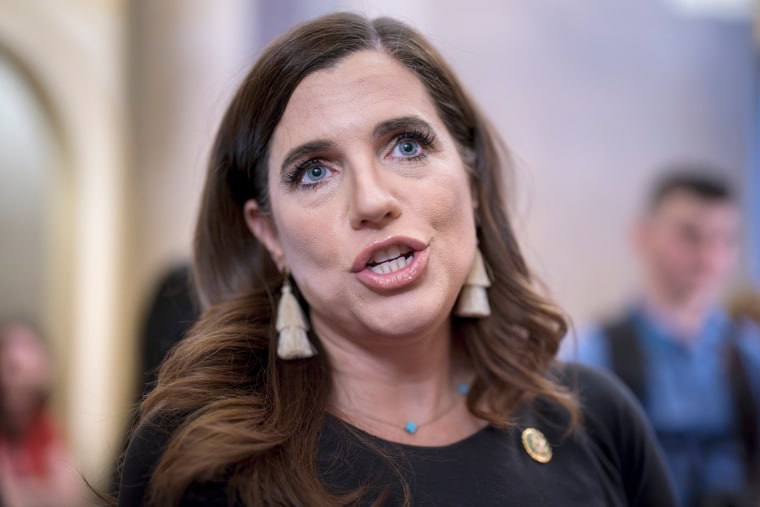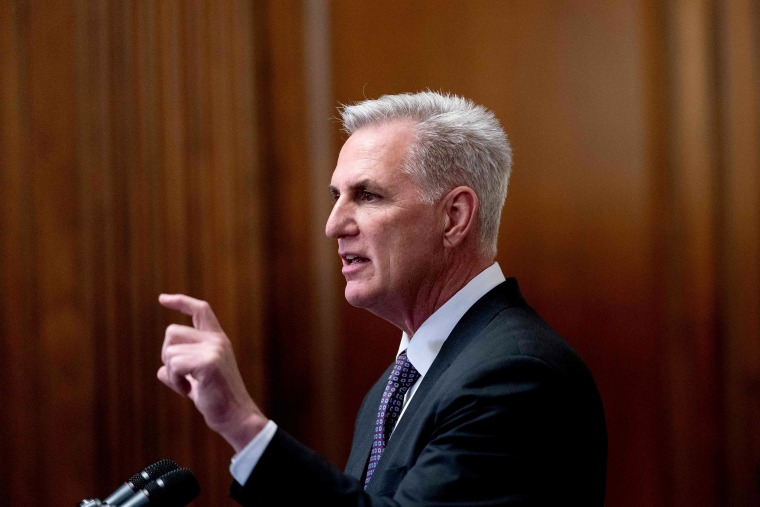The House members who voted against the deal to raise the debt limit Wednesday almost exclusively represent districts that bear little resemblance, politically, to the tightly divided nation.
Of the 117 House members who voted against the deal negotiated by President Joe Biden and House Speaker Kevin McCarthy, just seven are in districts with races rated "competitive" in 2024 by the nonpartisan Cook Political Report.
Those members are Republican Reps. Ryan Zinke of Montana, George Santos of New York, Scott Perry of Pennsylvania, Nancy Mace of South Carolina and Democratic Reps. Katie Porter of California, Jahana Hayes of Connecticut and Val Hoyle of Oregon.

Even fewer — just five — of Wednesday's "no" votes are in districts that are on the opposing party's early target lists for 2024. Hoyle, Porter and Hayes' districts are being targeted by the NRCC, House Republicans' campaign arm, to flip in 2024. And, Perry and Zinke's seats are being targeted by the DCCC, House Democrats' campaign arm, to flip next year.
That means most of the "no" voters are representing such deep-blue or deep-red districts that the only political peril they could fear would come in a primary.
Here's another way to look at it: Out of 71 House members who won by less than 10 points in 2022, just eight voted against the deal. They are Reps. Anna Paulina Luna, R-Fla., Eli Crane, R-Ariz., Perry, Santos, Zinke, Hayes, Porter and Hoyle.
Porter is running for Senate in California against a pair of House Democratic colleagues. Rep. Barbara Lee also voted against the bill, while Rep. Adam Schiff voted for it.
Additionally, most of the members who voted against the bill to raise the debt ceiling are in their first, second or third term in Congress, per an NBC News analysis — that is, they came to Washington after the start of the Trump era.
The pattern was especially pronounced among Republicans.
Among House Republicans who have served three terms or fewer, the debt ceiling vote was 64-48. Veterans of four terms or more were more supportive: They backed the deal 85-23.
And Republicans serving at least seven House terms — meaning they were around for the big debt ceiling fight in 2011 between the GOP and then-President Barack Obama — showed virtually no appetite for bucking the current deal. Those long-tenured GOP members voted 45-8 in favor.
Democrats, meanwhile, supported and opposed the deal at about the same rate regardless of seniority. First-, second- and third-term Democrats voted 67-19 in favor of the bill. Those serving in their fourth term or later split 98-27.
The splits illustrate one of the reasons behind the slow death of bipartisan deal-making in Washington, as more experienced members open to compromise get replaced by a new generation taking a harder line. And it shows why fights like this one over the debt ceiling seem likely to continue happening.

